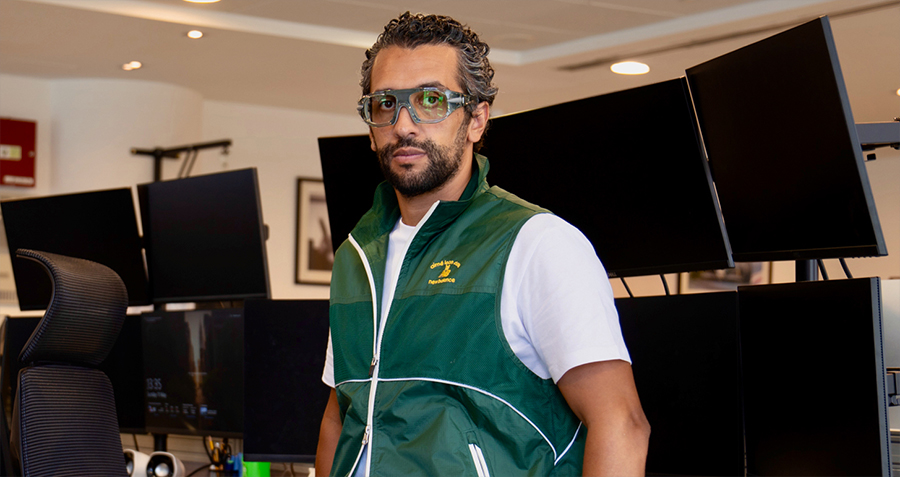Examining Enterprise
Across the last seven decades, China’s business landscape has experienced a number of upheavals and reorganizations, and today is no exception. Following the explosion of private enterprise in the country since it acceded to the World Trade Organization in 2001, the private sector looked set to dominate the country’s economy. But policy changes in recent years, as well as a return in strength of historical ideologies, has seen the value, size and importance of state-owned enterprises (SOEs) increase once more.
In this interview, Christopher Marquis, co-author of Mao and Markets and Sinyi Professor of Chinese Management at Cambridge University, discusses the importance of various types of business to the Chinese economy, the historical roots of both current policy and enterprise leadership strategies and the motivations behind trade-related sanctions in both China and the West.
Q. What is your sense of the current approach of the Chinese government towards private enterprise and entrepreneurs, both in terms of policy and actual implementation?
A. Over the last few years there has been a tightening in a number of sectors. Some of that is obviously legitimate, because for a long time the Chinese economy included a lot of freedom for entrepreneurs which ended up as an “act first and ask permission later” system, which was obviously not ideal. Ant Financial, for example, was functionally an unregulated financial institution, which is a legitimate concern.
But I also think that some of the tightening might be counterproductive. For example, the widespread nature of the crackdown on the tech industry, which is really the productive engine of China, seemed to include actions against some companies that really just hampered innovation. Also, despite there potentially being some legitimate national security concerns around data flow, the recent moves against Capvision, Bain and Mintz Group, as well as the restriction of access to the WIND database, will likely have long-term consequences. In the short term, these measures may allow the government to feel more comfortable, but a lack of information accountability to use for due diligence will negatively affect foreign investment, among other things.
Q. How important do you think private enterprise is to the stability and continued growth of China’s economy?
A. You can’t overestimate the importance of the private economy. It is responsible for a vast amount of income and an even larger percentage of China’s employment. I think that people in the West don’t really realize how big private enterprise is in China. The other thing that it brings, and has increasingly brought over the last 20 years or so, is innovation. Looking at AI now, but also fintech and e-commerce, much of this has developed through the private sector. Another reason why some of the crackdowns are counterproductive in my view, is that this innovation requires risk taking, and if you’re worried about the possibility that you might end up shut down or limited in the future, then you’re going to tone down the risks you take. It’s also why you see a lot of VCs and entrepreneurs moving to places like Singapore. There is a lack of confidence in the future.
Q. What are the prospects for a readjustment to this lack of confidence from private entrepreneurs and investors?
A. I can’t really see any changes happening until the end of these various crackdowns that cut right to the core of what private entrepreneurs and investors need. They need accurate data for reports and due diligence, that’s the case anywhere in the world, but especially for those wanting to enter a new market and one as competitive as China. Some that are already here might have their own data sources and a bit of an easier time, but that’s not a huge amount of cases.
Actions speak louder than words, and while there are lots of promises of opening up being made by various people, until things calm down, and calm down for a while, the reality is that it’s getting harder for private enterprise across most sectors.
Q. Given the fact that there is often a lower return on investment and a lack of efficiency in state-owned enterprises (SOEs), why do you think the system still supports them to the extent that it does?
A. Social stability is a good reason, they keep people gainfully employed. The chip company SMIC for example, has about four times the number of employees they would have if their fabs were run privately. SOEs also build schools, towns and housing—it’s all part and parcel of creating an economic and social safety net for more people. They play an important role from those different aspects, if not others, too.
Q. Where do you see Maoist influence remaining in the current government approach in China and do you see that reflected in the approach of private entrepreneurs as well?
A. I think there have been some overly simplistic comparisons between the current leadership and Mao, particularly around the 20th Party Congress, but I do think that there are many echoes of the Maoist approach in the system today. A large number of the older generation who now hold power, both politically and in the business sphere, grew up in the tail end of Mao’s time in power and were socialized as such. I think one of the key indicators of this has been the increased focus on the Party being the center of the system in recent years, as well as an increased number of campaign activities, such as the anti-corruption campaign, zero-COVID and the chip self-sufficiency stuff. All of these are reminiscent of parts of the Mao era.
In terms of entrepreneurs, it’s quite easy to see the effects of socialization on their business operations, they’re often more nationalistic in their decisions and are much more likely to engage in social responsibility-related activities.
Q. A lot of those socialized at that time are now part of the older generation. To what extent are these types of entrepreneurs becoming less common?
A. They are still definitely still around, but many of those running the businesses are now very much into retirement age, so a change is probably due. But what would be interesting to see is whether this current refocusing on ideology under the current leadership, with all these movies and emphasis on things like Red tourism, etc., will have a galvanizing effect on a new generation of similarly minded entrepreneurs.
Q. What are the main differences between these nationalistically-oriented businesses and other private enterprises?
A. One of the outcomes we looked at was engagement with foreign companies, and it became clear that these companies are much less likely to expand abroad or take on international investment. The companies are often very focused on self-reliance and maintaining their independence.
We found that those who lived through the difficulties in the Great Leap Forward in the late 1950s were much more likely to be frugal with their spending and being more rigorous with their resource use, but at the same time likely to be more creative with their resource use as well. Many entrepreneurs from that time have talked about how living through that period really made them see outside the box in some ways, because that was how they had to ensure they had enough to get by at the time. There is also research that mirrors these results with US entrepreneurs who lived through the Great Depression.
Q. What are the fundamental reasons for the Party’s hesitancy in terms of all-out support for private enterprise?
A. On the one hand, recent trends reflect the fact that maybe they thought they had given private enterprise too free a rein and it is now time to pull it in. This is something that has historically happened in China’s push-and-pull type of system. There are also just generally more discussions around the Marxist foundations of the economy going on at the moment and I think this is perhaps because the country has reached a certain level. When Deng Xiaoping enacted his economic pivot in the late 1970s, China really needed to develop itself and now, even though there are still levels of inequality in the country, it is pretty well-developed. There are a number of companies leading in innovation in a number of very important industries and so perhaps they have decided that they have attained some or all of what they set out to attain and therefore will put the brakes on things through ideology a little bit.
Q. The US and the EU have imposed sanctions on various parts of the Chinese economy. What is your view on how they are impacting the system and what will be the system’s response?
A. I think the US has gone somewhat too far in its sanctions. I think many of the tariffs on China have been enacted less because of international relations or national security, but because of domestic politics. A lot of the tariffs have been shown to mainly end up being paid by American consumers or hurting American businesses. Obviously, I understand the importance of sanctions on things such as telecoms infrastructure or chip technology, things that have serious national security implications, but we should carefully analyze those and find where things need or don’t need to be addressed. But I think generally the way that the US has closed off access to some areas of China business will have a negative impact on the US over time.
On the China side, there are some legitimate national security concerns around data security and movement, but at the same time it feels like there are areas where they have gone past what would be reasonably required. I think for both sides it ends up being much more of a domestic politics issue and things spiral out of control, so I’m not optimistic about the future.
Q. Given the dynamic you’ve put forward in your book, what is your sense of the possible scenarios for China in the coming decade?
A. I don’t see further liberalization. I think that as long as the current leadership is in power, it seems that there will be a continuing tightening of ideological control, which will be to the detriment of both local economic growth and innovation, and also the interests of foreign companies doing business in China. It will probably also lead to an increased outbound flow of entrepreneurs and people who have the money and ability to go outward. At some point, things will reach a certain level and they’ll change, but who knows when that will be?
Interview by Patrick Body
Christopher Marquis is the Sinyi Professor of Chinese Management at Cambridge University. He has recently co-authored the book Mao and Markets: The Communist Roots of Chinese Enterprise



















